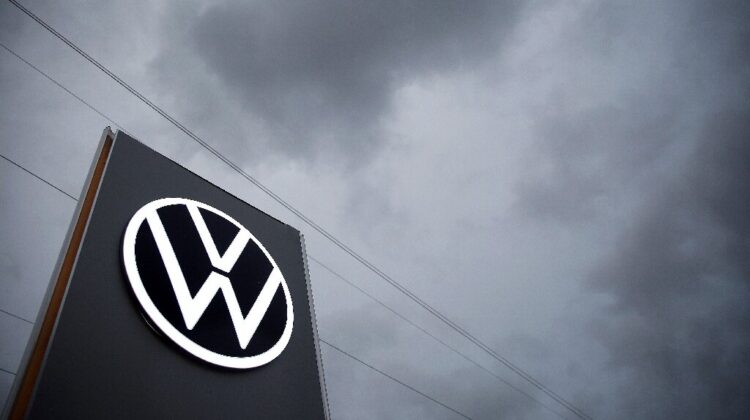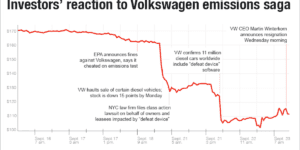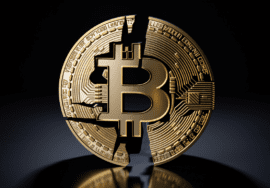

The Meaning Behind Corporate Social Responsibilities and The Consumer’s Trust


Opinion by arsim@thejournalbiz.com
It’s widely known that doing business comes with certain social and legal responsibilities.
By practicing corporate social responsibility, companies ought to be aware of how much they can impact society for good, including economic, social, and environmental aspects.
We often came across companies with high social responsibility and those with less so. It’s no coincidence that doing business means certain privileges, such as tax levies, and priorities in export, but everything comes with certain responsibilities, social, legal, and ethical above all else.
So, doing business that incorporates social responsibilities is essential not only for the consumers or companies that are driven by the benefits primarily but the entire ecosystem that contributes to economic prosperity.
The services provided and the products served to the global markets, in addition to the revenues that bring to the company, must also create a balance and ensure a certain quality and guarantee for the consumers too. In short, the social responsibility that every business claims to have should be matched in practice.
But what happens when businesses fall short of expectations?
Recently, media in Albania reported a case where the first suspicions were related to the “trade of expired goods”.
Initial claims were that a certain business from Kosovo exported expired meat from Brazil, which it then repackaged and sold as fresh meat.
Reactions from both sides were contradictory, to say the least. Many speculations were raised by the media who claimed to have investigated the case, but little has been proven to date, and the only official documents we have are the ones issued by the Food and Control Authority of Albania, which has temporarily suspended all trade, but recently reinstated imports from the Kosovan company.
On the other hand, Kosovo’s Food and Veterinary Agency declared that “the meat of Kosovo’s company meets the criteria, and the origin of the product coincides with the declarations made by the company, thus all presumed allegations are unfounded.
- However, as of the reporting date, we have no additional claims regarding what was alleged in the first place.
Furthermore, the company accused of illegal trade remains silent as far as the lawsuit for the ‘harm of reputation’ is concerned, an act that no serious company would follow in such a high-profile case. That said, this case like many others in the past is going towards the same bizarre ending, the one without a clear legal conclusion. And this can only strengthen the argument that certain local companies are far from grasping the concept of what ‘corporate social responsibility’ really means, let alone applying such high standards criterion.
But how cases of fraud and deception are dealt with in countries with consolidated legal systems?
We can illustrate how did the U.S. deal with one of the most prolific cases, widely known as the ‘diesel-gate’ scandal.
Chart Timeline of Stock Crash Amid Diesel Gate Scandal


Chart DW
The case of Volkswagen can serve as a perfect example of what proceeds when a designated brand fails to abide by the ‘Corporate Social Responsibilities’. Even though the company enjoyed the trust of the consumer, within a short period it lost its allure and many even predicted the bankruptcy of the German giant.
Immediately after the initiation of the investigation into the scandal, the value of the company suffered a huge drop in markets, as a consequence Volkswagen registered the biggest loss ever recorded in the auto industry.
But how did the ‘diesel-gate’ scandal unfolded?
In September 2015, the ‘American Environmental Protection Agency’ after preliminary information initiated an investigation on Volkswagen, based on the suspicion of installing computer programs in their diesel cars, which enabled their vehicles to cheat in EPA emissions tests.
However, VW kept claiming that their new diesel cars emit less than the limits allowed by law in the US, and after the retesting of all VW diesel cars dedicated to the US market, it turns out that VW missed the quote by quite a margin, as Environmental Protection Agency was right, VW cheated the data.
Chart on the aftermath of the Diesel Gate scandal


Wall street chart on VW
In fact, nitrogen oxide (NOX) emissions for VW cars were 40 times higher than US standards.
The company deliberately decided to cheat by installing a means of circumventing emissions control to give the company an unfair advantage over its competitors, because its supposedly ‘environmentally friendly’ engines were quite the opposite. The scandal “diesel-gate” turned out to be one of the most expensive when it comes to corporate social responsibility failures.
A total loss of over $33 billion, including fines and damages, in addition to the loss of prestige and consumer confidence was indeed a hard pill to swallow for VW.
Therefore, VW’s case is considered not only the largest failure in the history of the automotive industry but also serves as a case study of what happens to a well-established brand, when it fails to meet its expectations of doing business ethically by complying with corporate social responsibilities.
As for the case dispute in Albania, the cited case will soon be forgotten, as many prior cases that were swept under the rug, and therein lies the gap when consumers lose trust, not only in brands but in the legal system too. And losing the consumer’s trust means one thing only, a road toward bankruptcy, if the company fails to learn from its own mistakes. Apparently, in Western Balkans, we saw no such thing, despite numerous cases of massive fraud, deceptions, tax evasion, and whatnot, and this proves that without quality control assurance, and strict rules on production, the big companies usually ‘get away with murder’








